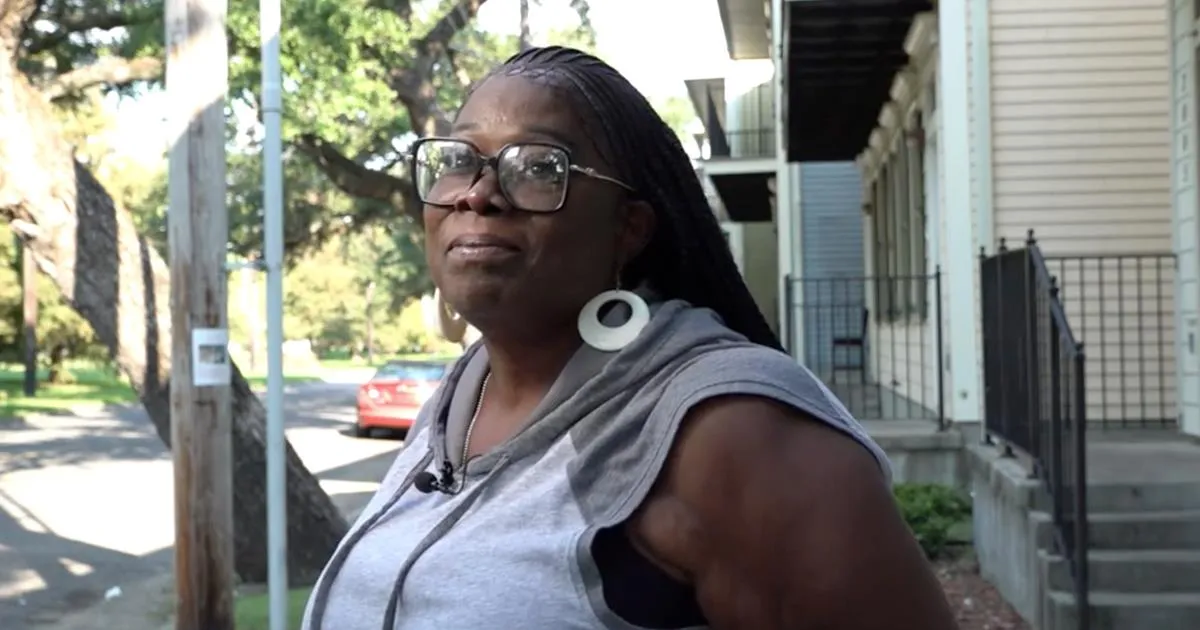
Two decades after Hurricane Katrina struck the Gulf Coast, survivors continue to vividly recount their harrowing experiences in the aftermath of the storm. In New Orleans, many residents initially believed they had narrowly escaped disaster, only to find themselves overwhelmed as the storm surge breached levees and flooded the city. As days passed, the dire circumstances escalated, leading to nearly 1,400 deaths, displacing over a million people, and inflicting hundreds of billions of dollars in damages across the region.
While the recovery process has varied significantly among individuals, some who returned to New Orleans have discovered newfound hope and resilience in the city they cherish.
For Toranzette Andrews, losing everything to Hurricane Katrina became a catalyst for her to start anew. Andrews and her family were unable to evacuate before the Category 3 hurricane struck. "We weren't able to just get up and go," she recounted in an interview with CBS News shortly after the storm. "We don’t have transportation. I mean, we’re living paycheck-to-paycheck." In a desperate attempt to navigate the rising waters, Andrews and her sister tied shoestrings to their children to wade through the flooding. Once they reached the interstate, one of the few dry areas, they found themselves stranded, along with thousands of others.
"We stayed on the bridge as the sun began to beat down," Andrews recalled. Not knowing what would happen next, they felt a glimmer of hope when an Army truck arrived, taking her family to the Convention Center. Eventually, they were relocated to Houston, Texas, where they found an apartment, secured jobs, and spent 16 years while her children completed their education. "Right now, in my present life, I’m not where I want to be, but I’m better than I was," Andrews said. "It was really a blessing in disguise, giving us more opportunities." She emphasized that the hurricane made her stronger and instilled a sense of resilience. "If you went through Hurricane Katrina, you could survive anything," she asserted.
As floodwaters rose in New Orleans, Charity Hospital faced an unprecedented crisis. The basement began to flood, taking down essential electrical equipment and plunging the hospital into darkness. Dr. Alan Marr, a surgeon, recounted the desperate measures taken to keep patients alive, stating, "We’ve got a number of patients still on ventilators; we’ve got patients that need dialysis." In an interview, he described hauling portable generators up 12 flights of stairs and switching patients to oxygen-powered ventilators while relying on sparse food resources. "It was bare bones, but we had enough to do what we had to do," he noted.
With communication systems down, state officials mistakenly believed that the hospital had already been evacuated. "We heard them report that everybody at Charity Hospital had been evacuated," Dr. Marr recalled. "We were sitting there looking at our patients, going, 'No, we haven’t. We’re still here.'" It took five days to evacuate all patients, a period Marr described as one of the most challenging in his life. He learned invaluable lessons about leadership and the importance of community support during crises. "I came to New Orleans to make a difference, and when this occurred, I realized that more than ever, people needed to step up and help us recover," he reflected.
Eddie Compass, the superintendent of the New Orleans Police Department during the storm, continues to bear both physical and emotional scars from those chaotic days. Facing a city that was 80% underwater, with downed communications and minimal outside assistance, Compass described the overwhelming challenge of coordinating rescue efforts. The Superdome, initially a haven, had turned into a nightmare with inadequate facilities and dwindling supplies.
"It was overwhelming to a certain extent," Compass admitted. "I didn't sleep for the first three days." The toll of exhaustion was evident as he made a passionate plea for help during a CBS Evening News segment. "We have people who have lost their families and they have not gotten out of this fight," he expressed. Two decades later, Compass acknowledges the emotional toll that the chaos of Katrina inflicted on him. "The few times I broke down were because of my heart and love for my city," he stated, remembering the personal losses he faced, including the deaths of his elderly relatives who could not evacuate.
The early days after the storm saw media focusing on crime and looting, often mischaracterizing the desperate actions of residents. Compass clarified, "The people were hungry. They needed help." He emphasized that many looters were simply seeking food and water. "I never gave an order to shoot alleged looters," he asserted, defending the actions he took during the crisis.
After Hurricane Katrina, Compass experienced significant professional upheaval, including being fired from the police department due to political disagreements. However, he shifted his focus towards helping underserved children in Louisiana and now works as a personal trainer and freelance bodyguard. Approaching retirement, he looks forward to spending more time with his family.
Reflecting on the lessons learned, Compass believes that cities across the nation are now better prepared for disasters than New Orleans was in 2005. "We were the guinea pig, the prototype for how to handle it when it happens," he concluded, emphasizing the importance of learning from past mistakes while recognizing the lives saved by first responders during those critical moments.